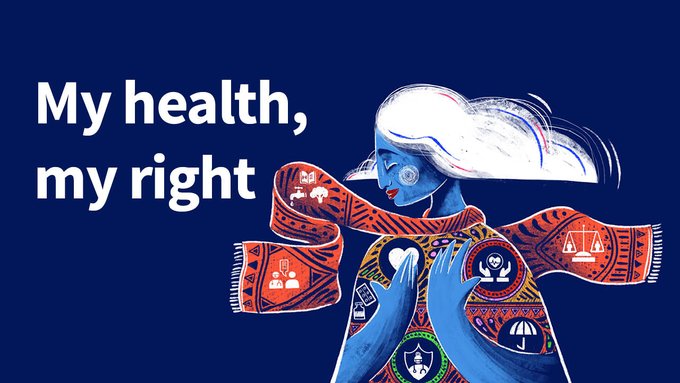|
Getting your Trinity Audio player ready…
|
Writes Jacob Ngwenya
World Health Day celebrated on the 8th of April every year is being commemorated this year under the theme: My Health, Mÿ Right. Around the world, the right to health of millions is increasingly coming under threat. Diseases and disasters loom large as causes of death and disability. Conflicts are devastating lives, causing death, pain, hunger, and psychological distress. The burning of fossil fuels is simultaneously driving the climate crisis and taking away our right to breathe clean air, with indoor and outdoor air pollution claiming a life every 5 seconds.
The WHO Council on the Economics of Health for All has found that at least 140 countries, Zimbabwe included, recognize health as a human right in their constitution as seen in Section 76.2 of our constitution regarding chronic diseases also known as noncommunicable diseases(NCDs]. Yet Zimbabwe is not passing and putting into practice laws to ensure its population is entitled to access health services in this regard.
This underpins the fact that most people living with NCDs are not fully covered by the essential health services they need. To address this type of challenge, the theme for World Health Day 2024 is ‘My health, my right’.
This year’s theme was chosen to champion the right of everyone, everywhere to have access to quality health services, education, and information, as well as safe drinking water, clean air, good nutrition, quality housing, decent working and environmental conditions, and freedom from discrimination.
As people living with NCDs uniting under Beat NCDs Zimbabwe, we call upon the government of Zimbabwe to uphold the right to health by making sure that they provide the full continuum of Healthcare services ranging from health promotion, prevention, treatment, and rehabilitation to palliation. To ensure that we enjoy our fundamental human rights, we call for a holistic approach to the health and well-being of everyone which includes tackling all social, environmental as well as institutional and structural determinants of Health.
If not tackled concurrently, these determinants of health create barriers to the attainment and enjoyment of our right to health. These rights remain the preserve of the few who are rich and famous, defeating the health of all concepts that aim to leave no one behind but reach the furthest and the poorest first.
Enacting NCD legislation will see a replication of the results enjoyed by the National AIDS Council Act passed during the peak of the HIV/AIDS epidemic.
This Act of Parliament saw a lot of HIV programs backed by policies being put in place which saw a massive reduction in HIV prevalence rate notwithstanding the introduction of antiretroviral therapy (ART0, a life-saving therapy that saw a massive reduction in morbidity and mortality rates thereby ensuring that the life expectancy of people living with HIV returns to normal.
This eventually became a success story which earned a best practice slot in the HIV arena. We call for investment into NCDs to turn the tide and bridge the NCDs care gap ensuring guaranteed access to quality healthcare services for everyone, regardless of age, gender, income, or migration status, and availability of health services when AND where they are needed.
This will also show that there is no financial hardship from accessing these services. Upholding the right to health is a very sure way of achieving universal health coverage (UHC).
